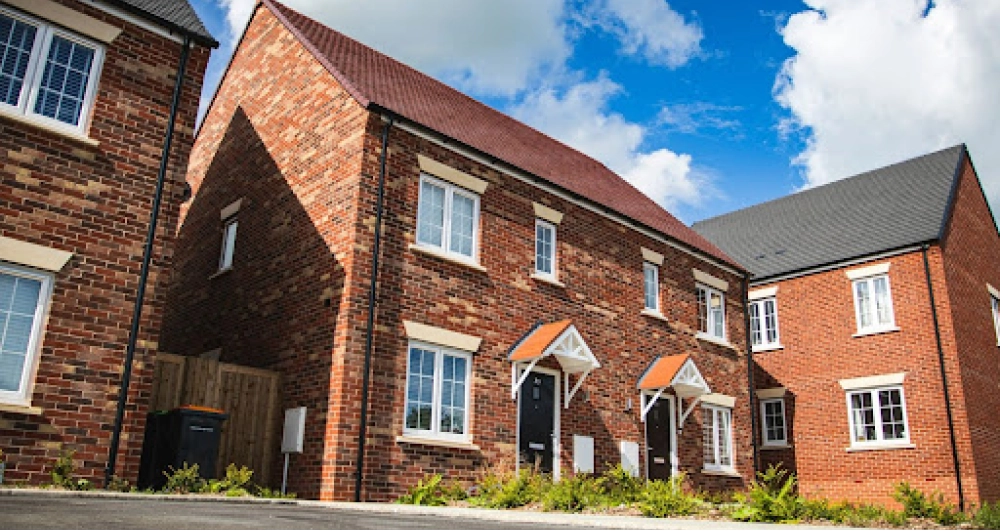
If you’re a non-UK resident looking to buy property in the UK, obtaining a mortgage may feel like navigating uncharted waters. Securing Mortgages for non UK residents can be a complex process, with key considerations like your visa status and financial footprint in the UK playing critical roles in the approval process. This article cuts through the complexity, offering a straightforward blueprint for securing mortgages for non UK residents to buy property abroad mortgage, with insider knowledge on meeting eligibility and financial prerequisites.

There are 3 key factors that significantly influence the mortgage eligibility for non-UK residents.
Grasping these aspects can bolster your chances of approval, paving the way to secure a foothold in the UK property market with the help of a UK lender.
In the world of UK mortgages, visa status is not merely a document; it’s a determinant of your eligibility. UK mortgage lenders acknowledge a range of visa types, with some considered more advantageous. For instance, a Tier 2 visa mortgage can often have an upper hand in the mortgage approval process versus a student visa.
The length of your visa validity also contributes to your eligibility for mortgage approval. Most UK lenders require a minimum of two years’ residency in the UK and at least a year remaining on your visa. However, some lenders may demand a two-year visa validity, often coupled with a 25% deposit requirement.
Employment verification for non-UK applicants serves as a fundamental element in the mortgage approval process, aiding lenders in assessing an applicant’s mortgage affordability. The type of employment, whether self-employed, contract, or permanent can influence the approval process. While the employment type does matter, the possession of a valid residence permit also holds significant weight during the approval process.
If you have income from overseas, lots of lenders will be willing to offer you a mortgage as a foreign national. The only difference is that you will need to meet certain criteria to get your foot on the UK property ladder.
If you are self-employed the process for proof of earnings will be more involved and will require you to provide accounts going back several years using a reputable international accountant.
The residency criteria for mortgage applications can vary among lenders. However, a longer UK residency generally opens doors to more mortgage options and improves approval chances. A specialist mortgage broker can help navigate the process and find suitable mortgage options based on your residency duration and other factors.
In the UK, there are lenders that offer foreign national mortgages that are designed for non-UK residents. Though these mortgages are typically more expensive than mortgages for people who live in the UK, they can help you to buy UK property as they have flexible residency requirements.

For non-UK residents aiming to secure a UK mortgage, it’s important to establish a financial footprint in the UK that can show your financial stability and reliability.
There are 2 key actions you can take as a non-UK resident to help you with obtaining a UK mortgage. They are to have an active UK bank account and an active credit card. There are a few reasons why these can help you to buy property in the UK, they are as follows.
An active UK bank account forms an essential part of the mortgage equation. It offers lenders insights into your financial transactions and habits, showcasing your ability to handle finances and thereby painting you as a trustworthy borrower.
When lenders review your bank account, they don’t just look at numbers. They delve into your balance history, income confirmations, regular outgoings, source of deposits, and even your income versus expenses. This comprehensive assessment aids in determining your financial stability and spending patterns. That’s why it’s advisable to uphold an active UK bank account for a minimum of 2 years before applying for a mortgage.
Creating a traceable UK credit history is like providing a trail for lenders to follow. It showcases your financial conduct, shedding light on your ability to manage credit and meet repayments, all while building a traceable credit history.
The process of building a credit history can commence within a few hours, but making a significant impact on your credit score usually involves maintaining an active account for at least three to six months. You can build a credit history by using credit cards and loans responsibly and ensuring timely repayments.

The Loan-to-Value (LTV) ratio holds a significant influence in the mortgage approval process, especially for non-resident borrowers. It represents the percentage ratio of the value of the property being purchased to the amount of loan required for its purchase. A higher LTV ratio can lead to stricter terms, increased interest rates, and potentially heightened fees.
Lenders, therefore, favour borrowers with a lower LTV ratio as it represents a reduced risk for them.
Non-resident borrowers often face lower LTV limits due to lenders’ preference for lower LTV ratios to mitigate the lending risk. Non-residents will often need to provide a higher deposit and demonstrate excellent income and a solid financial background to qualify compared to UK residents.
The standard LTV ratio for non-resident borrowers in the UK is 75%. This ratio necessitates a more thorough suitability assessment for non-residents, who may have a smaller deposit or irregular income, potentially leading to a higher LTV requirement and stricter borrowing limitations.

As a non-UK resident, navigating the mortgage market can be very difficult. This is where specialist mortgage brokers come in.
Specialist mortgage brokers act as gateways to a trove of flexible lending criteria. They establish connections with high-street lenders, specialist lenders, and private banks that provide more accommodating terms of financing for non-resident individuals.
They also provide access to custom mortgage products and short-term financing tailored to the specific needs of non-UK citizens seeking to purchase or refinance properties. This ability to customise advice and access a broader array of mortgage options sets specialist mortgage brokers apart.

Buy-to-let mortgages present non-UK residents with a distinct opportunity to delve into the profitable UK property market. They are specialised loan products designed for buying properties with the primary purpose of generating rental income.
However, securing a buy-to-let mortgage as a non-UK resident comes with its own set of challenges. Some of these challenges include:
At Prosperity Wealth, we understand the importance of securing investment properties with ease and confidence. Our unique payment plans cater to diverse financial needs, ensuring that acquiring your dream investment property is a seamless process. With flexible options tailored to your requirements, we empower you to take charge of your investment journey with confidence.
Additionally, our dedicated team assists in securing mortgages by connecting you with the right lenders, streamlining the process and ensuring favourable terms. Our commitment to personalised service and expertise in the real estate market sets us apart, guiding you every step of the way towards building your wealth portfolio.
Buy-to-let mortgages often come with their own unique terms and conditions. These mortgages are generally structured as interest-only loans, where the borrower pays only the interest each month and settles the principal amount at the end of the mortgage term.
The deposit threshold for non-UK residents applying for a buy-to-let mortgage generally ranges from 20% to 25% of the property’s value. In addition, the typical loan-to-value ratio for non-residents applying for a buy-to-let mortgage in the UK is 75%.
A joint mortgage application can prove to be a good option for mixed-nationality couples. It allows both partners to combine their financial capabilities, presenting a more robust financial profile to lenders.
This combination of incomes and credit scores can significantly enhance the chances of mortgage approval. It allows couples to combine resources for a larger deposit, secure more advantageous interest rates, and expand their borrowing capacity—particularly crucial for non-UK residents who may encounter difficulties in obtaining a mortgage independently.
A joint mortgage application with a non UK citizen partner and a UK citizen can significantly improve the chances of approval. The lender will consider the combined credit score of both applicants, so a positive credit history of the UK citizen can have a favourable impact on the application.
A spouse visa in the UK allows individuals to join their partner who is a British citizen or settled person in the country. It enables spouses to live and work in the UK for a specified period, typically two and a half years, with the possibility of extending it further. When it comes to obtaining a property investment mortgage, having a spouse visa can be advantageous. Lenders often consider the stability of an applicant’s residency status when assessing mortgage applications.
With a spouse visa, applicants demonstrate a legal right to reside in the UK, which can enhance their eligibility for a mortgage.
Additionally, joint applications with a spouse who is a UK citizen or permanent resident may strengthen the financial profile, potentially leading to better mortgage terms and rates. Thus, a spouse visa plays a crucial role in securing a property investment mortgage in the UK, providing stability and assurance to lenders regarding the applicant’s residency status and financial stability.
In essence, a joint mortgage application allows mixed nationality couples to leverage combined income and credit history for more favourable mortgage terms.
In order to secure a UK property, you need to be prepared for the mortgage application process. This involves gathering necessary documents and ensuring eligibility.
For mortgage applicants who are non-UK residents, preparing all necessary documents in advance can streamline the application process, saving considerable time and effort.
Also, keep in mind that non-UK residents may be subject to an additional 2% surcharge in addition to the standard rates applicable to UK residents.
Navigating the UK mortgage landscape as a non-UK resident is challenging but possible with the right knowledge and guidance. We hope that this blog post has equipped you with insights into navigating mortgages for non UK residents, mortgage eligibility, establishing a financial footprint, understanding LTV ratios, and partnering with specialist brokers. We’ve also explored investment strategies and the benefits of joint mortgage applications. Armed with this information, you are now ready to navigate the labyrinth of UK mortgages for non citizens and secure your piece of the UK property market.
If you’re ready to invest in the UK property market or want to further explore the available opportunities, reach out to us. Contact us by phone: 0121 237 4610, email: info@prosperity-wealth.co.uk or use our online chat and start your investment journey today!
Yes, if you can provide evidence that your annual income is in excess of £60,000 p.a. sterling (or equivalent of £75,000 p.a. if earned in local currency), you can get a mortgage as a non-UK resident and self-employed.
Yes, immigrants can get a mortgage in the UK as long as they meet the necessary lender criteria and hold a qualifying visa. The British Government offers different options to accommodate various immigration statuses.
Yes, as long as you can provide evidence that your annual income meets the required threshold.
An active UK bank account is important for a mortgage application because it provides lenders with a clear view of your financial transactions and habits, showcasing your stability and reliability. This could strengthen your mortgage application.
The Loan-to-Value (LTV) ratio is the percentage ratio of the property’s value to the amount of loan needed for its purchase. This helps lenders assess the risk of the loan.